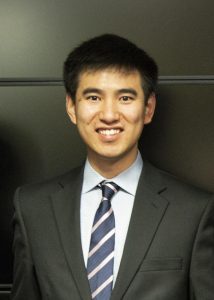
Professor Hao Yang of McMaster University was at UTTRI on November 15th to present “Integrated Traffic Management systems under connected environment”. He spoke about the scope of Connected Autonomous Vehicles (CAV) and how to efficiently manage their arrival.
The presentation began with an overview of AV and its market scenario. Yang stated that the market penetration rates are very high for autonomous vehicles. He discussed his analysis of the desired city level management and how it impacts AV market share.
Yang shared many insights from his research, for example:
- with the present growth rate, by 2040, 66% of passenger-kilometre1 will be occupied by AVs
- improving the safety and comfort of CAVs is a critical parameter in AV research
- the present market has limitations, like inadequate infrastructure to support connected autonomous vehicles
Yang closed his presentation looking to future research directions such as:
- evaluating AV performance in larger cities with complex networks
- using Vehicle Infrastructure Integration (VII) to directly link road vehicles to their physical surroundings, improving road safety
- Use of Artificial Intelligence (AI) enhanced traffic management
The seminar ended with audience Q & A and discussion about the transition of AVs to the next level, based on the results of Yang’s work.
1 A passenger-kilometre is performed when a passenger is carried one kilometre.
Abstract
With the development of connected vehicles and the upgrade of roadside infrastructures, managing the behaviors of individual vehicles can be much easier and smarter for the purpose of solving traffic congestion and improving mobility services. However, due to the size of road networks and number of vehicles in a large city, it is very challenging to manage all vehicles efficiently at multiple levels of road networks.
This presentation introduces the development of an integrated traffic management system to provide instructions at different levels of road networks, including individual vehicle, section, region, city, and even countries, for connected vehicles to react to road events, such as traffic congestion, vehicle collision, roadside construction, etc., to improve urban mobility. The system utilizes connected vehicles to monitor road traffic conditions with low latency and to instruct vehicles with an integrated strategy to reduce the impact of incidents and congestion on both individual vehicles and entire road networks. The system is evaluated under a city-level road network to understand its benefits on mitigating traffic congestion with different levels of managers.
The research concludes that the system can reduce the travel time about 8% for connected vehicles and 14% for non-connected vehicles. In addition, a sensitivity analysis of the market penetration rate of connected vehicles is conducted to understand the performance of the system a different stage of the connected vehicle development.

Dr. Hao Yang joined the department of Civil Engineering at McMaster University as Assistant Professor in 2019. He graduated from the department of Automation, University of Science and Technology of China with a BSc in 2008. He received Master’s (2009) and PhD (2013) degrees in Civil and Environmental Engineering from the University of California, Irvine. He was awarded a second Master’s degree (2013) in Statistics from University of California Irvine. Dr. Yang worked as a Postdoctoral Associate at Virginia Tech (2013 – 2015), Visiting Assistant Professor at Lamar University (2015 – 2017), and Principal Researcher at Toyota InfoTech Labs (2017 – 2019).
Professor Yang’s research focuses on the design and evaluation of connected and autonomous vehicle implementations to improve vehicle mobility and energy efficiency for the rapid development of smart cities. His major research interests include modeling and managing the behaviors of connected and autonomous vehicles to mitigate road congestion, to reduce vehicle energy consumption and emissions, and to improve the performance of road transportation services. He is also working on investigating vehicle-to-vehicle and vehicle-to-infrastructure communications to manage transportation systems from micro- to macro-level urban networks. In addition, he is also interested in exploring new mobility services in the era of connected and autonomous vehicles. Yang believes that connected and autonomous vehicles will not only bring new mobility mode to the existing transportation system, but also reshape the entire society. It will be a key technology which can bring a huge resolution of human lives in the near future.
This seminar was presented by the University of Toronto Institute of Transportation Engineers (ITE) Student Chapter.
